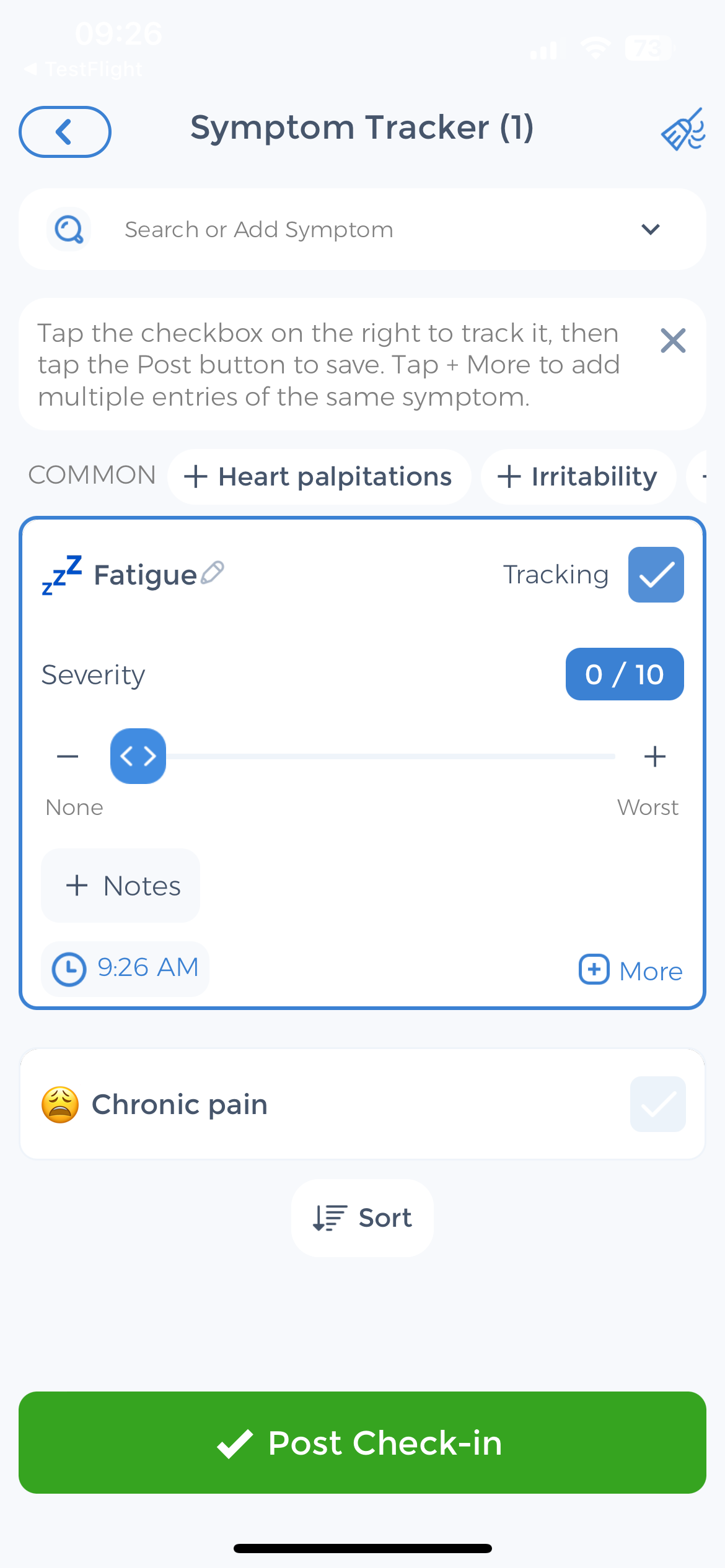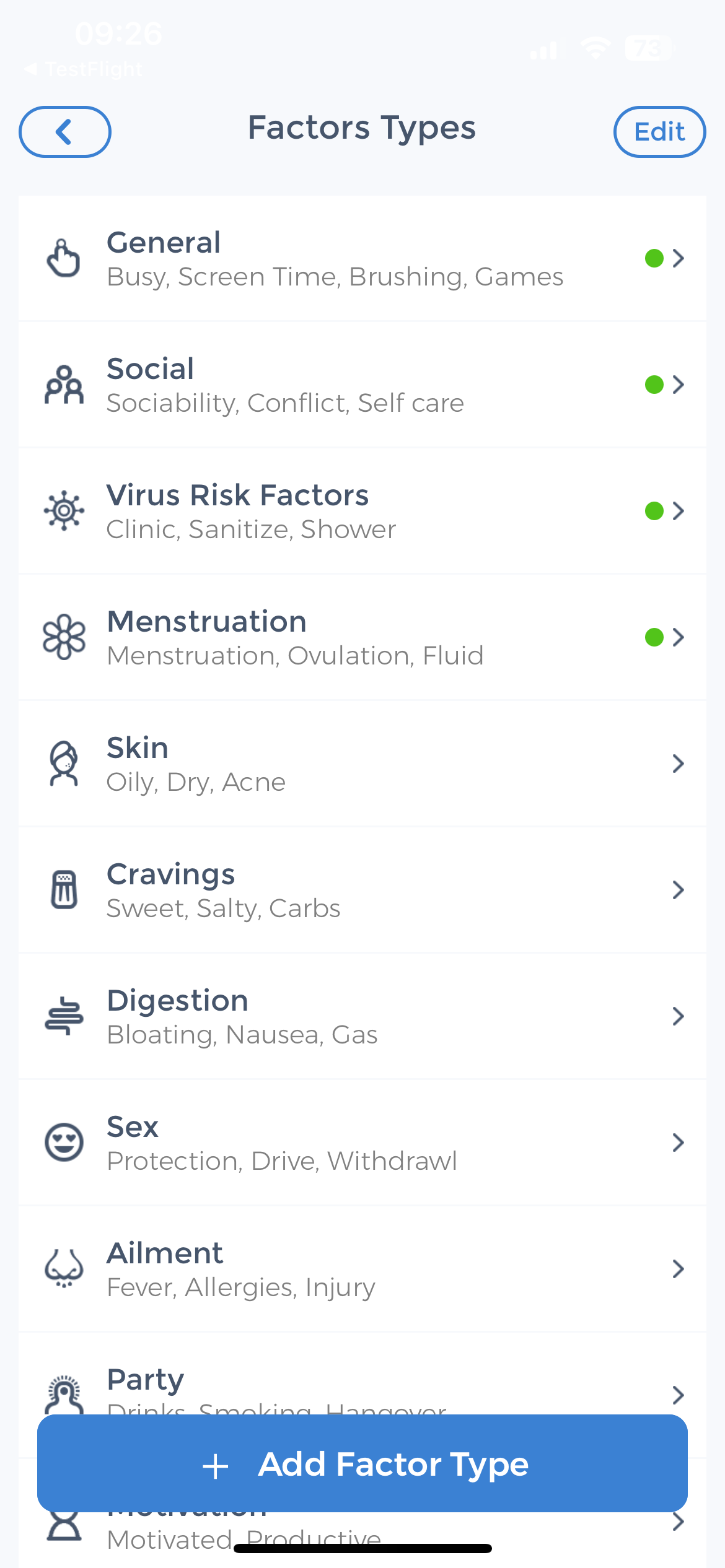 Fatigue is a common complaint that affects millions of people worldwide. Whether it’s feeling tired all the time, lacking energy to perform and make daily tasks completed, or struggling to concentrate. Fatigue can have a significant impact on our overall well-being. Understanding the causes and symptoms of fatigue is crucial in finding effective solutions to conquer exhaustion.
Fatigue is a common complaint that affects millions of people worldwide. Whether it’s feeling tired all the time, lacking energy to perform and make daily tasks completed, or struggling to concentrate. Fatigue can have a significant impact on our overall well-being. Understanding the causes and symptoms of fatigue is crucial in finding effective solutions to conquer exhaustion.
In this article, we will explore the science behind fatigue, the importance of tracking your fatigue levels, how to set up a fatigue diary, and how to interpret your diary entries to implement necessary changes for better energy management.[1]
Understanding Fatigue: Causes and Symptoms
 Fatigue can be caused by various factors, including physical, mental, and emotional stressors. When it comes to physical stressors, engaging in strenuous physical activities or having a physically demanding job can leave you feeling drained and fatigued. On the other hand, mental stressors such as excessive workloads, long hours of studying, or constant worrying can also take a toll on your energy levels.
Fatigue can be caused by various factors, including physical, mental, and emotional stressors. When it comes to physical stressors, engaging in strenuous physical activities or having a physically demanding job can leave you feeling drained and fatigued. On the other hand, mental stressors such as excessive workloads, long hours of studying, or constant worrying can also take a toll on your energy levels.
Moreover, emotional stressors like relationship problems, grief, or financial difficulties can contribute to persistent fatigue. It’s important to note that these stressors can often overlap. Creating a perfect storm for exhaustion and weariness.
Medical conditions such as anemia, hypothyroidism, and chronic fatigue syndrome can also contribute to persistent fatigue. Anemia is a condition characterized by a lack of healthy red blood cells. It can lead to decreased oxygen supply to the body’s tissues, resulting in fatigue. Hypothyroidism is a condition in which the thyroid gland doesn’t produce enough thyroid hormone. It can cause fatigue due to a slowed metabolism. Lastly, chronic fatigue syndrome is a complex disorder characterized by extreme fatigue that cannot be explained by any underlying medical condition.
Recognizing the symptoms of fatigue is crucial. As they can be indicative of underlying health issues that may require medical attention. The symptoms of fatigue can manifest differently for each individual. However, they often include feelings of exhaustion, lack of motivation, difficulty concentrating, and irritability. Some individuals may also experience physical symptoms. Such as muscle weakness, headaches, or a general sense of heaviness.
Addressing and managing fatigue effectively starts with identifying these symptoms. It’s important to listen to your body and take note of any changes in your energy levels and overall well-being. If you find yourself constantly feeling fatigued, it may be beneficial to consult with a healthcare professional. A professional can help determine the underlying cause and develop a personalized treatment plan.[2]
The Importance of Tracking Your Fatigue
Keeping a fatigue diary is a powerful tool for understanding your energy levels and identifying patterns that contribute to your fatigue. By tracking your daily activities, emotions, and sleep patterns, you can gain valuable insights into what triggers your exhaustion and how to overcome it.
Benefits of Keeping a Fatigue Diary
One of the key benefits of maintaining a fatigue diary is that it allows you to see the bigger picture of your energy levels over time. By consistently recording your daily experiences, you can identify recurring patterns or triggers that may be impacting your fatigue. This awareness enables you to make more informed decisions and take proactive steps towards managing your energy levels.
CareClinic, a comprehensive health tracking app, offers specific features and functionality designed to make fatigue tracking effortless. With its intuitive interface and customizable options, CareClinic allows users to easily record their daily activities, emotions, sleep patterns, and medications all in one place. The app also provides graphical representations of your fatigue levels, making it easier to visualize and analyze your data.
Additionally, tracking your fatigue can provide you with a sense of control and empowerment. By actively monitoring your energy levels, you become an active participant in your own well-being. This can lead to a greater understanding of your body’s needs and help you make necessary adjustments to your lifestyle.
How Tracking Can Lead to Conquering Exhaustion
By diligently tracking your fatigue levels, you can identify activities or factors that drain your energy and make adjustments accordingly. For example, if you notice a spike in fatigue after a night of poor sleep, you can focus on improving your sleep hygiene in order to enhance your energy levels.
Moreover, tracking your fatigue can help you recognize patterns and triggers that may go unnoticed otherwise. Perhaps you notice a recurring feeling of tiredness after consuming certain foods or engaging in specific activities. Armed with this knowledge, you can make informed choices that support your energy and well-being.
Furthermore, tracking your fatigue can also be a valuable tool in communicating with healthcare professionals. By having a detailed record of your energy level and potential triggers, you can provide your doctor with accurate and relevant information during appointments. This can lead to more effective discussions and personalized treatment plans.
In conclusion, tracking your fatigue through a diary or a health tracking app like CareClinic can provide you with valuable insights, empower you to make informed choices, and enhance your overall well-being. By taking an active role in managing your energy level, you can conquer exhaustion and live a more energized and fulfilling life.
Setting Up Your Fatigue Diary
Creating a fatigue diary is a straightforward process that can be tailored to your preferences. Here are some essential elements to consider when setting up your diary:
Essential Elements and Spaces of a Fatigue Diary
- Date and Time. Record the date and specific times throughout the day when you experience changes in your energy level.
- Activities. Note down your daily activities, including work, exercise, household chores, and leisure time.
- Emotions. Pay attention to your emotional state throughout the day. Stress, anxiety, and negative emotions can significantly impact your energy.
- Sleep Patterns. Record your sleep duration and quality. Adequate and restful sleep are vital for maintaining good energy level.
- Medications. If you are taking any medications or supplements, make sure to include them in your diary. Some medications may induce fatigue as a side effect.
Choosing the Right Format for Your Symptom Monitoring
 When it comes to documenting your fatigue diary, there are various formats to choose from. Some individuals prefer pen and paper, while others find digital solutions more convenient. CareClinic offers a user-friendly app that allows you to track your fatigue levels effortlessly. With its advanced features and integration options, CareClinic simplifies the process of recording and analyzing your data. Find the format that best suits your lifestyle and preferences to ensure consistency and ease of use.
When it comes to documenting your fatigue diary, there are various formats to choose from. Some individuals prefer pen and paper, while others find digital solutions more convenient. CareClinic offers a user-friendly app that allows you to track your fatigue levels effortlessly. With its advanced features and integration options, CareClinic simplifies the process of recording and analyzing your data. Find the format that best suits your lifestyle and preferences to ensure consistency and ease of use.
Now that you have a clear understanding of the essential elements of a fatigue diary and the different formats available, let’s delve deeper into the benefits of maintaining a detailed record of your fatigue levels. By consistently tracking your energy levels, you can identify patterns and triggers that may be contributing to your fatigue. This information can be invaluable in helping you make necessary lifestyle changes and seek appropriate medical advice.
Additionally, keeping a fatigue diary can provide a sense of empowerment and control over your health. It allows you to actively participate in your own well-being by monitoring and managing your energy levels. By taking charge of your fatigue, you can make informed decisions about your daily activities, prioritize self-care, and optimize your overall quality of life.
Interpreting Your Fatigue Diary Entries
Once you have accumulated enough data in your fatigue diary, it’s time to analyze and interpret your entries. This process can help you gain valuable insights into your energy levels and identify actionable steps to manage fatigue effectively.
Recognizing Patterns and Triggers
Review your fatigue diary entries and look for recurring patterns or triggers that coincide with periods of low energy. For example, you may notice that your energy levels dip after eating certain foods or engaging in specific activities. By identifying these patterns, you can make conscious choices to avoid or modify them, ultimately reducing fatigue.
Making Sense of Your Energy Levels
Take note of your energy levels throughout the day and consider any external factors that may contribute to your highs and lows. Observe if there are particular times of day when your energy is at its peak or when you experience a significant drop in energy. This awareness can help you plan your activities more effectively and optimize your energy management.
Furthermore, it’s important to consider the quality of your sleep when interpreting your energy levels. Poor sleep can have a significant impact on your energy levels throughout the day. Take note of the duration and quality of your sleep each night and analyze how it correlates with your energy levels the following day. This information can help you identify any sleep-related issues that may be contributing to your fatigue.
In addition to sleep, it’s also beneficial to pay attention to your hydration and nutrition. Dehydration and nutrient deficiencies can lead to feelings of fatigue. Analyze your fatigue diary entries to see if there are any patterns related to your fluid intake or the types of food you consume. By ensuring you are adequately hydrated and nourished, you can support your body’s energy production and reduce fatigue.[3]
Implementing Changes Based on Your Fatigue Diary
Once you have analyzed your fatigue diary entries, it’s time to implement changes that will help you conquer exhaustion and improve your overall well-being.
Lifestyle Adjustments for Better Energy and Activity Management
Based on your observations from your fatigue diary, consider making lifestyle adjustments that support optimal energy levels. For example, if late-night screen time negatively impacts your sleep quality and subsequently leads to fatigue, try establishing a screen-free bedtime routine to improve your sleep hygiene.
Furthermore, it’s important to note that the quality of your diet can also have a significant impact on your energy levels. Consider incorporating nutrient-rich foods into your meals, such as fruits, vegetables, whole grains, and lean proteins. These foods provide essential vitamins and minerals that can help combat fatigue and promote overall well-being.
In addition to dietary adjustments, regular exercise can play a crucial role in managing fatigue. Engaging in physical activity not only boosts your energy levels but also improves your mood and promotes better sleep. Whether it’s going for a brisk walk, practicing yoga, or participating in your favorite sport, finding an exercise routine that suits your preferences and abilities can make a significant difference in your energy levels.
Lastly, managing stress is essential for maintaining optimal energy levels. Chronic stress can deplete your energy reserves, leading to fatigue and burnout. Consider incorporating stress management techniques into your daily routine, such as deep breathing exercises, meditation, or engaging in activities that bring you joy and relaxation.
Remember to consult with a healthcare professional, as they can provide personalized recommendations based on your specific needs and any underlying medical conditions.
Seeking Professional Help When Necessary
If despite your self-care efforts and adjustments based on your fatigue diary, you continue to experience persistent fatigue that interferes with your daily life, it’s essential to seek professional help. A healthcare provider, such as a doctor or a sleep specialist, can perform further evaluations, conduct necessary tests, and provide targeted treatment options to address your specific situation.
Furthermore, it’s worth mentioning that there are various medical conditions that can cause fatigue, such as anemia, thyroid disorders, or sleep disorders like sleep apnea. If you suspect that an underlying medical condition may be contributing to your fatigue, it’s crucial to discuss your concerns with a healthcare professional who can conduct the appropriate tests and provide an accurate diagnosis.
Tracking your fatigue levels through a comprehensive fatigue diary can be a powerful tool in understanding and conquering exhaustion. CareClinic’s intuitive app offers specific features and functionality to simplify the tracking process and provides actionable insights to optimize your energy management. By analyzing your diary entries and making lifestyle adjustments, you can take charge of your fatigue and improve your overall well-being. Remember, self-care is key, and with the right tools and mindset, you can regain control over your energy levels and live a more energized, fulfilling life.[4][5]
Use the CareClinic App as a Guide for Complete Symptom Monitoring
Take the first step towards revitalizing your energy with the CareClinic App. Designed to help you track and manage fatigue, this app offers a personalized approach to understanding your unique patterns and triggers. With features like daily activity logging, sleep pattern tracking, and medication reminders, CareClinic provides actionable insights that can lead to improved health outcomes. By consistently using the app, you’ll gain a comprehensive view of your energy levels, empowering you to make informed decisions about your health.
Download the CareClinic App Today
Don’t let fatigue control your life any longer. The CareClinic App is your ally in the quest for better energy management, offering a user-friendly interface and valuable data visualization to help you pinpoint what works best for your body. Experience the benefits of having a digital health partner that’s as invested in your well-being as you are. Install the app today and start your journey to a more energized and fulfilling life.
References
- “The demographic features of fatigue in the general population worldwide: a systematic review and meta-analysis – PubMed”. https://pubmed.ncbi.nlm.nih.gov/37575103/
- “Fatigue: Causes & Treatment”. https://my.clevelandclinic.org/health/diseases/21206-fatigue
- “Surprising Ways Hydration Affects Your Sleep”. https://www.sleepfoundation.org/nutrition/hydration-and-sleep
- “We know late-night screens are bad for sleep. How do you stop doomscrolling in bed?”. https://apnews.com/article/a7db582df6a888c1062c1490c5d3a485
- “Sleep hygiene”. https://en.wikipedia.org/wiki/Sleep_hygiene


